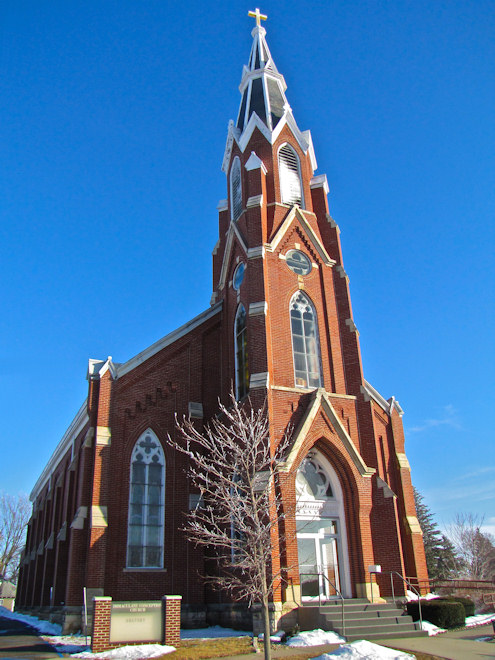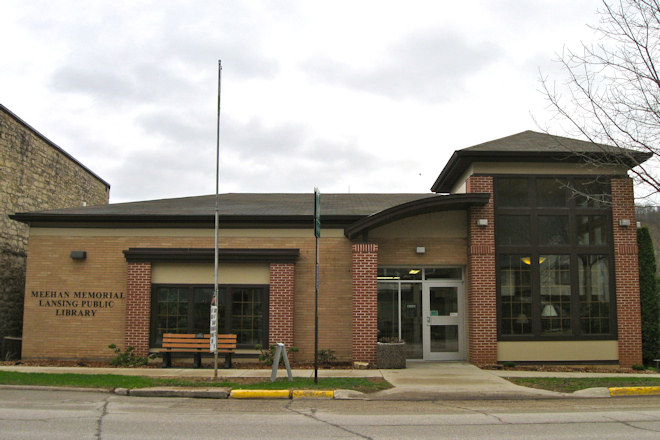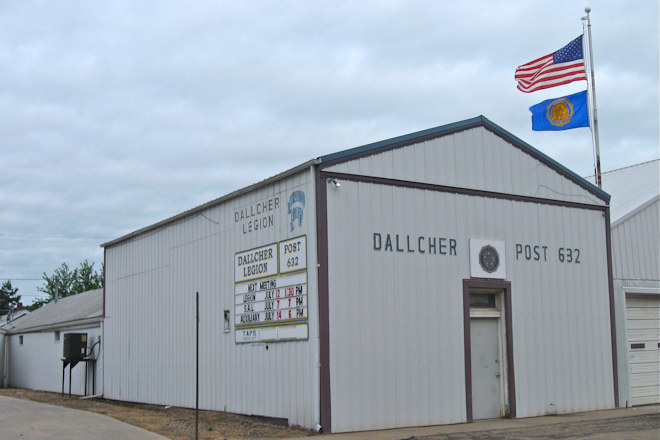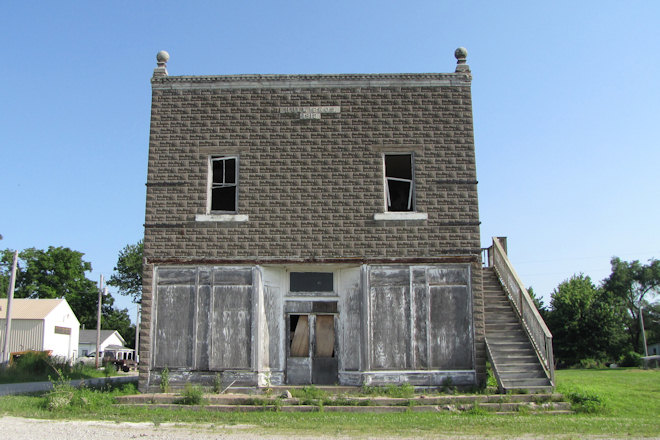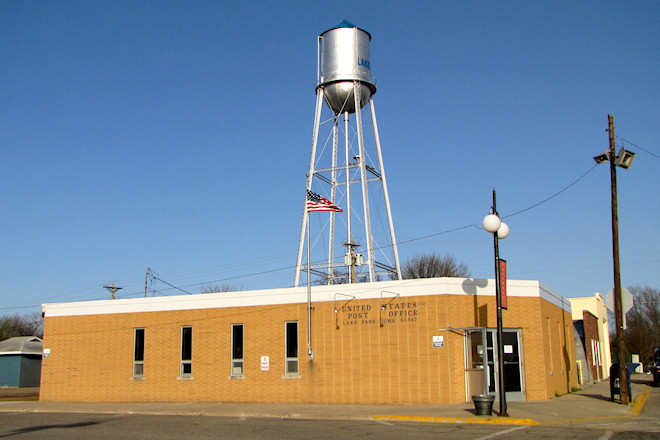
Around 250 people showed up on October 22, 1966, in the Lake Park Town Hall for dedication ceremonies for the new post office building. The ceremony included a keynote address from U.S. Congressman Stanley Greigg, who explained how the new Lake Park Post Office was built under the U.S. Postal Service’s lease construction program, where facilities remain under private ownership, pay local taxes, and are leased to the government.
Greigg also commended the community of Lake Park, which had rebounded from a main street fire in 19623. The blaze destroyed the local bowling alley, cafe and only department store, but by the time of dedication the bowling alley and cafe were rebuilt and the department store moved across the street. The ceremony was concluded with an open house of the new postal building. Coffee and donuts were furnished by the Lake Park Chamber of Commerce.
